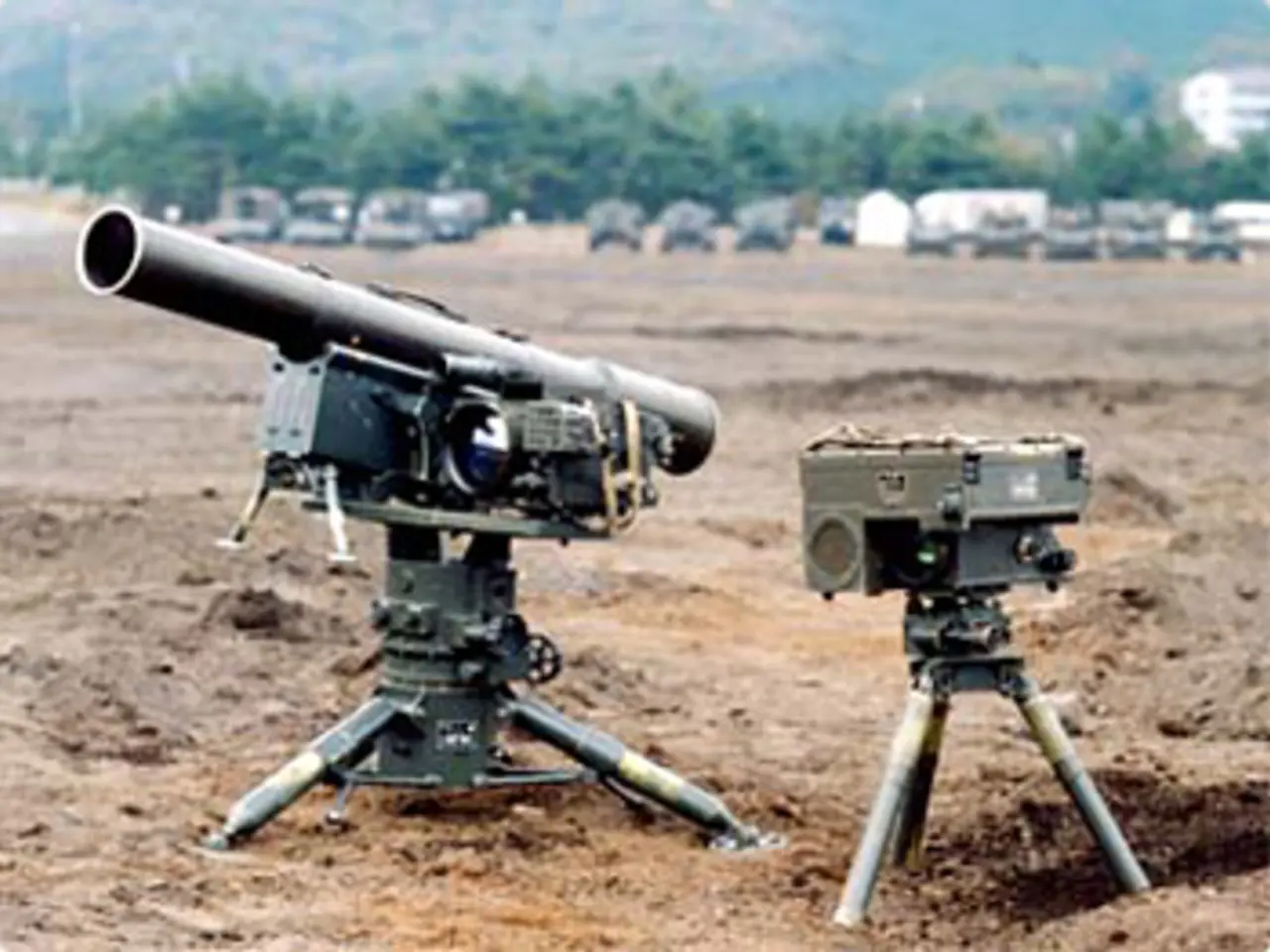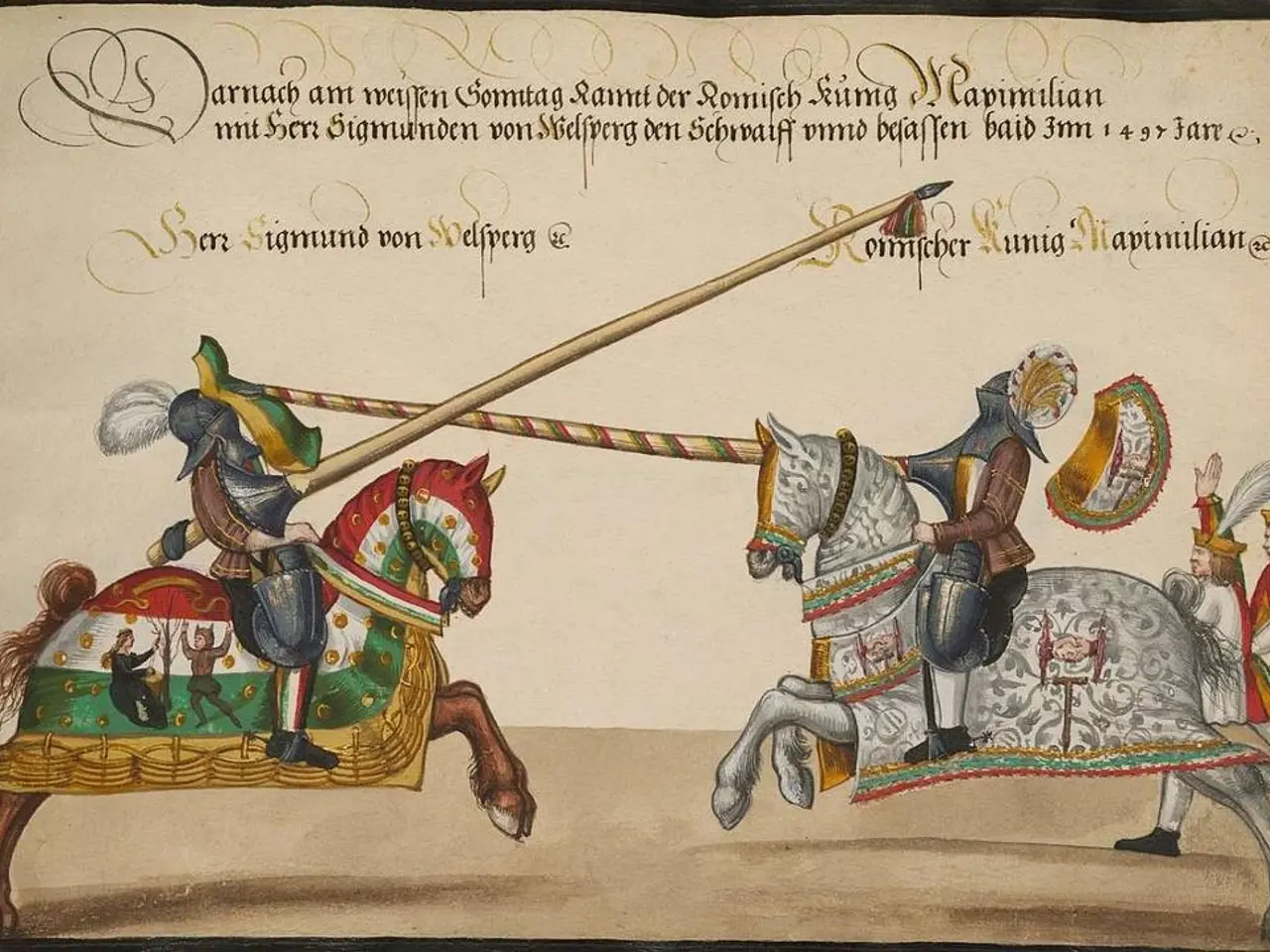Moscow Stands Firm on Retaining Land-Based Nuclear Missiles
In a significant shift in global arms control, the Intermediate-Range Nuclear Forces (INF) Treaty, signed in 1987 by the United States and the Soviet Union, is no longer functioning as a binding arms control framework. This development follows the U.S. withdrawal from the treaty in 2019 and Russia's formal exit in 2025.
The INF Treaty aimed to eliminate an entire class of nuclear-capable missiles, leading to the dismantling of over 2,600 missiles and bolstering verification through mutual inspections. The treaty was a key arms control measure that helped ease Cold War tensions and stabilize European security by limiting missile deployment in European theaters.
However, the U.S. withdrew from the treaty in 2019, citing persistent Russian violations involving missile systems prohibited under the agreement. Russia initially maintained a moratorium on new deployments but formally suspended its compliance on the same day as the U.S. withdrawal and has since begun developing new hypersonic missiles and land-based intermediate-range systems.
Most recently, Russia announced in August 2025 that it was ending its unilateral moratorium on deploying short- and intermediate-range missiles, citing U.S. plans to deploy similar missiles in Europe and Asia-Pacific regions. This development signals a renewed missile buildup that reverses decades of arms reduction efforts.
Implications for European security, particularly in Germany
The collapse of the INF Treaty has raised concerns about a new arms race in Europe. With the potential deployment of U.S. and Russian intermediate-range missiles on European soil, regional security is destabilized, and the risk of military confrontation increases.
Germany, geographically central in Europe and hosting NATO bases, faces heightened strategic risks from missile deployments. These deployments could undermine Germany's security environment and complicate NATO's defense posture.
The treaty's demise reduces predictability and transparency between the two nuclear powers and NATO, potentially increasing mistrust and tension across Europe.
U.S. Deployment in Germany
The U.S. has planned to deploy hypersonic weapons and air defense missiles, such as the SM-6, in Germany. These deployments serve as a deterrent against Russian actions. Notably, Tomahawk cruise missiles, which can technically be equipped with nuclear warheads, are also planned for deployment in Germany.
Russian Response
Russian President Vladimir Putin had threatened to respond "mirror-like" to the planned U.S. deployment of missiles in Germany in 2026. Russia has already stationed nuclear-capable Iskander missiles in the exclave of Kaliningrad, which potentially reach German cities.
The Russian Foreign Ministry announced the end of a moratorium on adhering to the agreement. Despite this, according to Putin, Russia had previously imposed a moratorium on itself and continued to adhere to the agreements of the INF Treaty even after the U.S. withdrawal.
The German military has issued an explanation regarding Russian actions, expressing concerns about the potential deployment of Russian Iskander missiles in Kaliningrad.
As the situation continues to evolve, it is crucial for diplomatic efforts to ensure the maintenance of peace and stability in Europe. The re-emergence of ground-launched intermediate-range missiles has escalated security concerns in Europe, with Germany being a focal point due to its strategic location within NATO.
- The collapse of the Intermediate-Range Nuclear Forces (INF) Treaty, which aimed to limit missile deployment in European theaters and bolster verification through mutual inspections, has sparked renewed concerns about a new arms race in Europe, particularly in Germany.
- With the potential deployment of U.S. and Russian intermediate-range missiles on European soil, including in Germany, regional security is destabilized, and the risk of military confrontation increases, necessitating diplomatic efforts to maintain peace and stability in Europe.






